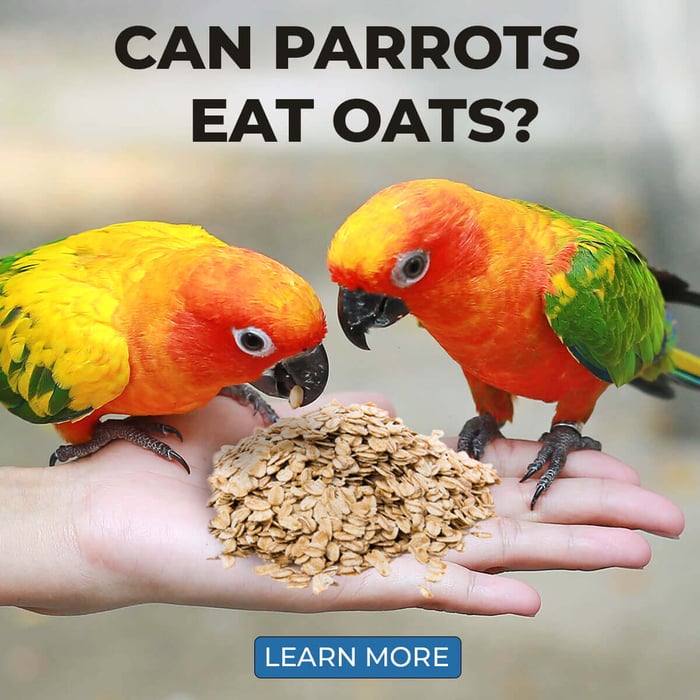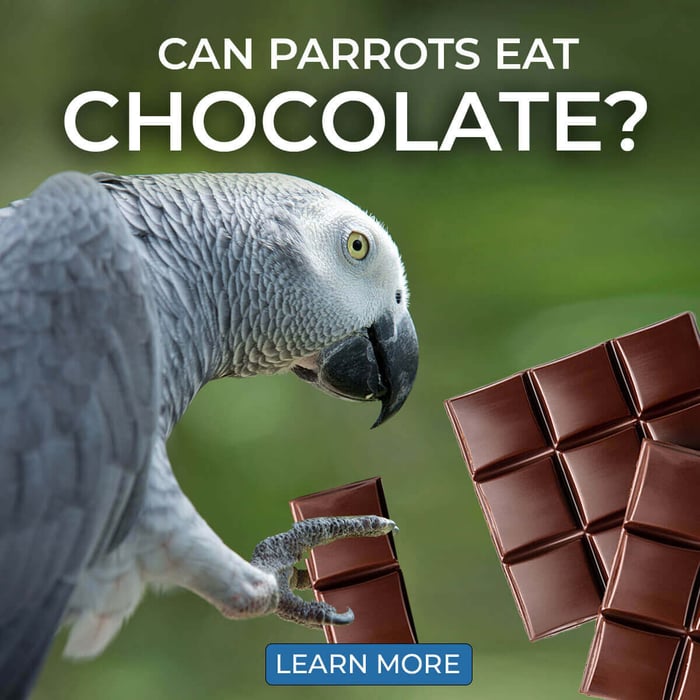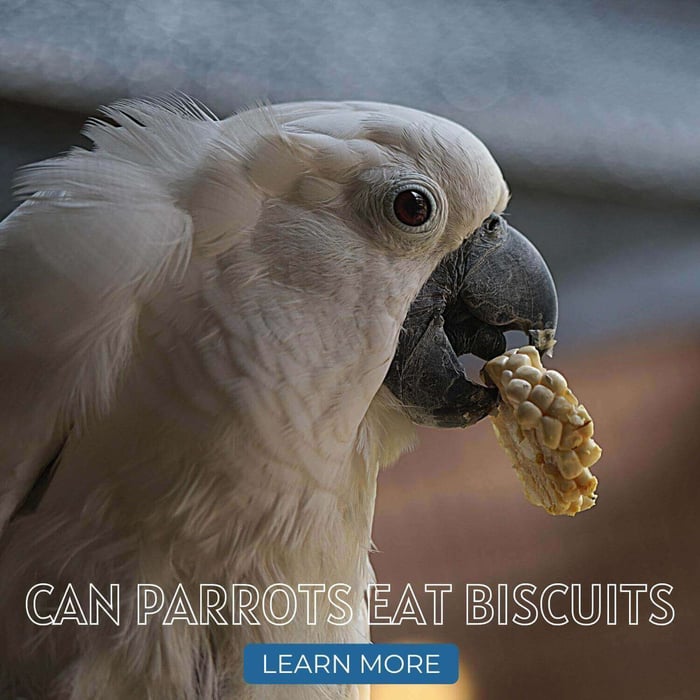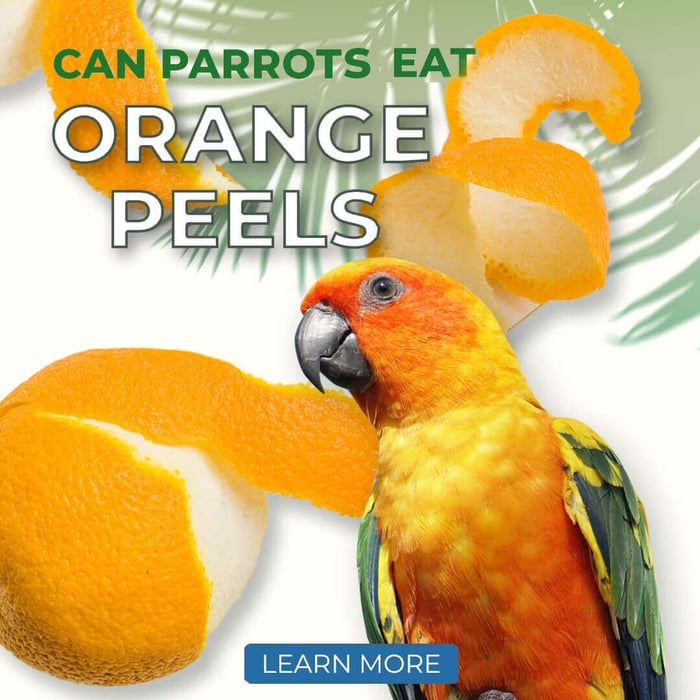Can Parrots Eat Sunflower Seeds?
Can parrots eat sunflower seeds? The short answer is yes, they can. In the wild, most parrots are seed eaters, so they have no problem cracking and eating sunflower seeds. This being said you may want to feed your parrots sunflower seeds only occasionally because there are some risk factors involved with overfeeding them.
What do sunflower seeds contain, and how do they affect your parrot? Let's find out everything you've ever wanted to know about sunflower seeds for parrots and best practices for feeding them.
What are Sunflower Seeds?
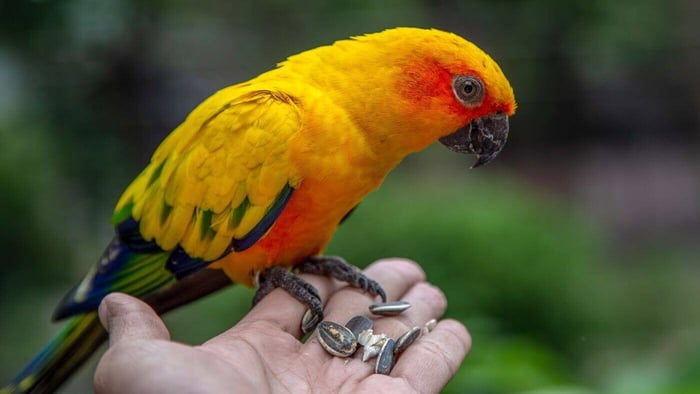
Sunflower seeds are edible and nutritious seeds derived from the sunflower, that ubiquitous yellow garden flower that can grow very tall. The seeds contain vitamins, as well as mono-saturated, poly-saturated, and saturated fats.
There are different sunflower species, but Helianthus annuus (the common sunflower) is the most popular. The genus Helianthus contains 70 species in total.
Sunflower seeds are usually cultivated to make sunflower oil, the fourth most trusted source of oil worldwide. However, various bird species, including parrots, also love these seeds – just as we humans do! As a result, they have long been considered a parrot staple food.
Types of Sunflower Seeds
Can Parrots Eat Sunflower Seeds? If So, what kind of sunflower seeds do parrots eat? The edible part of the sunflower is known as the sunflower heart or kernel. The seed has to be de-hulled in order to reach it.
The three types of sunflower seeds are:
- High oleic
- Linoleic
- Nusun
The linoleic seed is the most common sunflower seed on the market. It's usually easy enough to identify the sunflower seed by its husk: seeds with a black husk are known as black oil sunflower seeds. Confectionery sunflower seeds have stripes and are meant primarily for consumption.
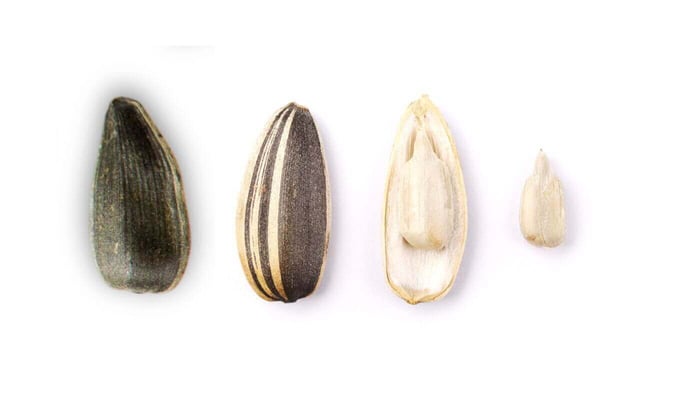
Nutritional Components of Sunflower Seeds
Sunflower seeds are rich in minerals and nutrients, though unfortunately, not all of these offer excellent value to your parrot. Sunflower seeds contain 20 per cent protein, 35–42 per cent oil (that's a lot!), and 31 per cent unsaturated fatty acids. They also contain oleic acid, linoleic acid, and dietary fibre.
Sunflower seeds have anti-inflammatory and anti-microbial properties, including antifungal and antibacterial solutions. The seed also contains tannins, phenols, and saponins, which can help in speeding up recovery from injuries.
About Parrot Diet
Psittacines or parrots are omnivorous birds that hail from the world's tropical and subtropical regions. Like other omnivores, they eat a mix of plant-based and meaty foods to sustain themselves. Their meals include nuts, seeds, fruit, flowers, insects and much more.
A parrot's exact natural diet depends on the species. Some, like the popular cockatiel and budgerigar, are almost exclusively seed eaters, also referred to as granivores. Many macaws feed almost exclusively on fruits and flowers.
There is a lot that can be said about parrot diet, as proper nutrition is one of the keys to keeping our pet birds happy and healthy in the long run. Sunflower seeds can be part of a parrot's daily meals, but you should always feed them sparingly.
Why Do Parrots Love Sunflower Seeds?
So, do parrots eat sunflower seeds? Well, actually, parrots love to consume all types of seeds. That includes sunflower seeds but also things like millet, chia, sesame, and even funky options such as watermelon seeds. It's no wonder seeds are considered the classic staple food for our hookbilled friends.
A parrot would eat only seeds and nothing else if given the chance. That explains why parrots love sunflower seeds. They're crazy about the flavour and love using their powerful beaks to carefully peel the seeds. But of course, the fact that they can doesn't mean they should!
Their love for sunflower seeds could lead to a sort of addiction. There's a reason these seeds are sometimes referred to as "parrot crack": they can start rejecting other foods or seeds, refusing to eat anything but sunflower. It's not ideal since these seeds alone don't contain all the nutrients your birds needs. They're also much too high in fat to be used safely as a daily staple.
It's common for these birds to cherry-pick a mixed meal to eat only the sunflower seeds. This is why a lot of parrot owners look specifically for seed mixes without any sunflower, like Johnston & Jeff No Sunflower No Peanut.
What Happens if My Parrot Eats Sunflower Seeds?
So, are sunflower seeds toxic to birds? No. Having the occasional sunflower seed will not harm your parrots. However, since sunflower seeds contain high-fat levels, they can be damaging to your bird's health if you feed too many. You should never feed a sunflower seed-only diet. In fact, you shouldn't even feed a seed-only diet: parrots need healthy pellets, vegetables, fruits and other foods to thrive.
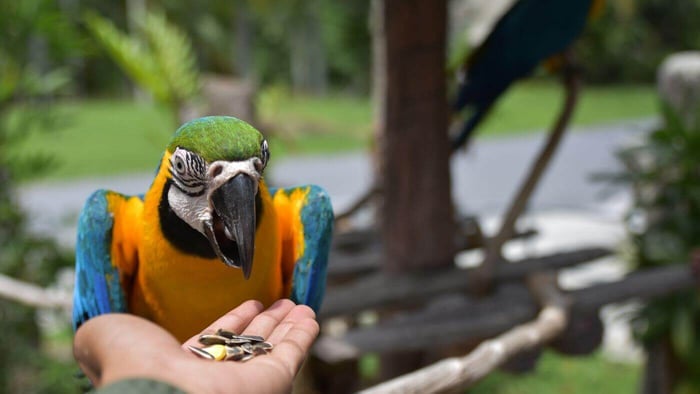 Likely ailments parrots can end up suffering on an exclusive sunflower seed diet include:
Likely ailments parrots can end up suffering on an exclusive sunflower seed diet include:
- Vitamin A and E deficiency
- Fungal infection (Aspergillosis)
- Chronic sinusitis
- Obesity
- Feather plucking
- Fatty liver disease
- Weak feather and beak
For example, vitamin A helps build your parrot's immune system. As a result, it keeps their organ walls strong and healthy. A Vitamin A deficiency can make your parrot prone to urinary tract disease, as well as intestinal and respiratory diseases.
Thus, overconsumption of sunflower seeds can make your parrot deficient in other essential minerals. It will also inevitably result in weight gain and malnutrition, which are among the major silent killers of pet birds in general. Additionally, your parrot could develop illnesses like atherosclerosis and fatty liver disease, which are risk factors for a stroke or heart attack in birds.
A weak immune system also makes your parrot susceptible to fungi and bacteria that cause infection, while the lack of minerals in this food can cause calcium deficiency. Effects of a prolonged calcium shortage include brittle nails, egg binding, and weak bones.
Let's go into a few of the more serious issues that can result from a sunflower seed-only diet below.
Obesity
An exclusive sunflower seed diet can cause obesity in parrots. Domesticated parrots rarely get enough exercise, mostly due to a combination of misinformation about what they should eat plus lack of regular exercise.
Obesity in parrots is a serious problem and a leading cause of death for these pet birds. It can result in fatty liver disease, overworking the heart, and joint strains or pains.
Symptoms of Obesity
- Difficulty moving around
- Baldness
- Difficulty breathing
- Fatty chest
- Egg binding
- Upper Respiratory Disease
An exclusive seed diet can cause breathing difficulty in parrots as a result of a lack of vitamin A. This has to do with the fact that Vitamin A protects the inner walls of the bird's respiratory tract, and Vitamin A deficiency can result in the spread of microorganisms and bacteria.
Symptoms of Upper Respiratory Disease
- Breathing difficulties
- Eye deformity
- Nasal discharge
- Voice distortion
- Watery eyes
- Wheezing
Raw Sunflower Seeds Vs. Cooked Sunflower Seeds
It doesn't matter whether you give your parrot sunflower seeds in their raw or roast/cooked state as long as they aren't covered in salt.
It is, however, best to give your parrot sprouts instead of dried seeds. Sprouted seeds are partially germinated, which causes part of their fat content to become converted into proteins. As a result, their nutritional value is higher than that of dried seeds. They're also easier for your bird to digest.
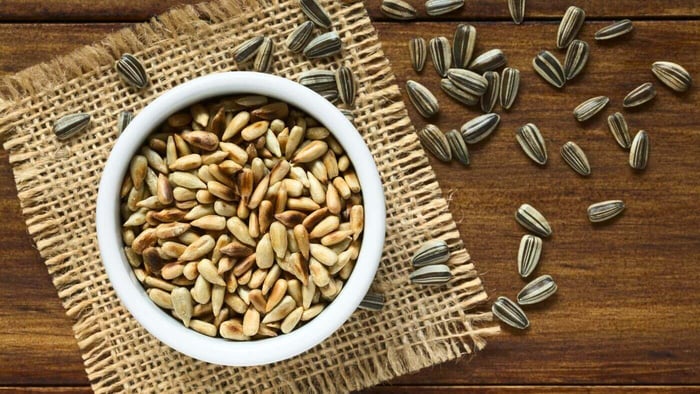
Sunflower Seed Alternatives for Parrot's Diet
Sunflower seeds should be an occasional treat for parrots, while healthy formulated foods and plenty of fresh produce form the base of their diet. Your parrots need a healthy dose of calcium and vitamins A and E. You can find loads of these vitamins in dark green or yellow vegetables. Spinach, broccoli or cuttlefish bone are healthy sunflower seed alternatives for parrots.
If you do want to feed your parrot some type of seed, that's fine. Just make sure you don't make it the bulk of your diet, and be sure to go for a varied mix.
Here are some healthy seeds for parrots:
- Barley seed
- Buckwheat
- Canary seed
- Dried corn
- Flax seed
- Hemp seeds
- Red, yellow, and white millet
- Milo seed
- Pumpkin seed
- Ripe papaya seeds
- Chia seeds
- Sesame seeds
- Watermelon seeds
- Pomegranate seeds
- Guava seed
- Pepper seed
- Tomato seed
- Mustard sprouts
- Flax seed
- Milk thistle seed
When trying to transition a parrot from a sunflower seed diet, it is advisable to do so gradually. Changing its diet too quickly can lead to stomach upset or even starvation, as your bird is likely unwilling to try anything but the sunflower seeds at first.
Conclusion: Can parrots eat sunflower seeds?
So, can parrots eat sunflower seeds? Well, feeding your parrots sunflower seeds is a little like when humans indulge in junk food. You know it's unhealthy, but you can't help but relish the taste. But remember that sunflower seeds' side effects can put your parrot's health at risk.
So, yes, parrots can eat sunflower seeds. But it should only be an occasional treat. They adore seeds like sunflower. But, to preserve their health, you should give parrots a combination of seeds and plenty of other nutritious foods. An excellent meal, a good bath, shelter, and a clean environment will keep your parrot healthy.

